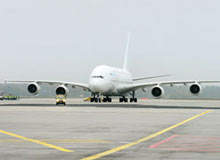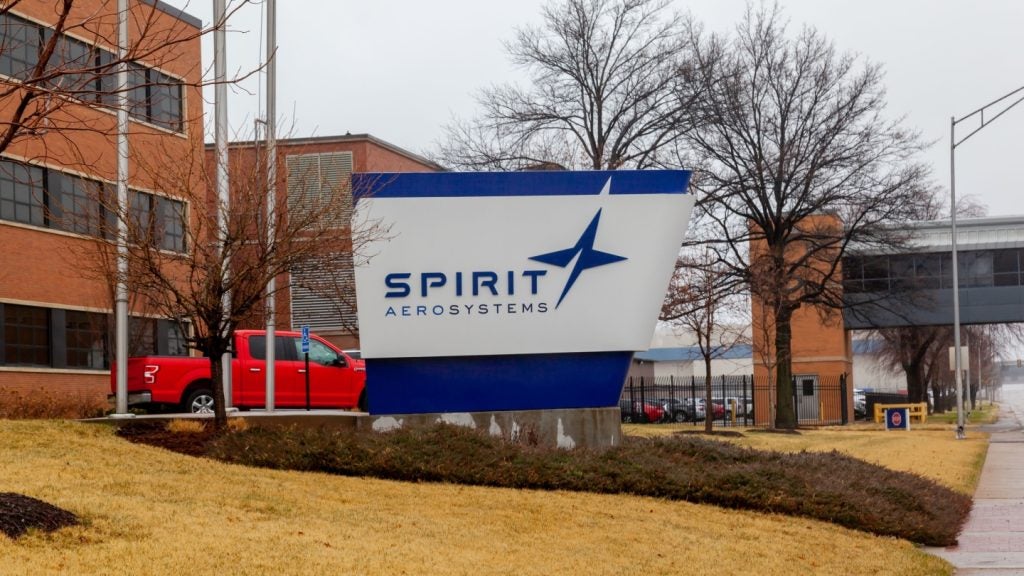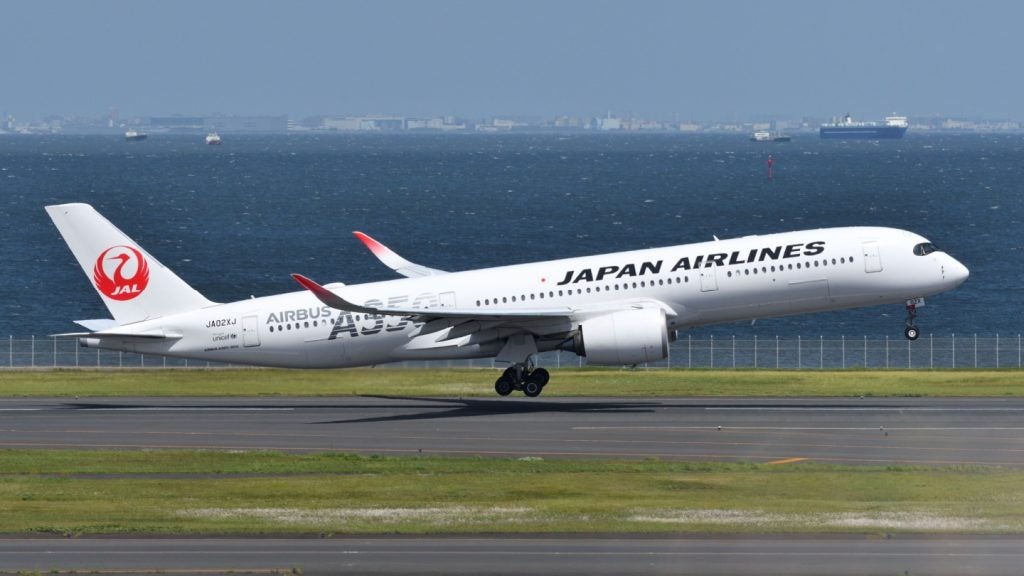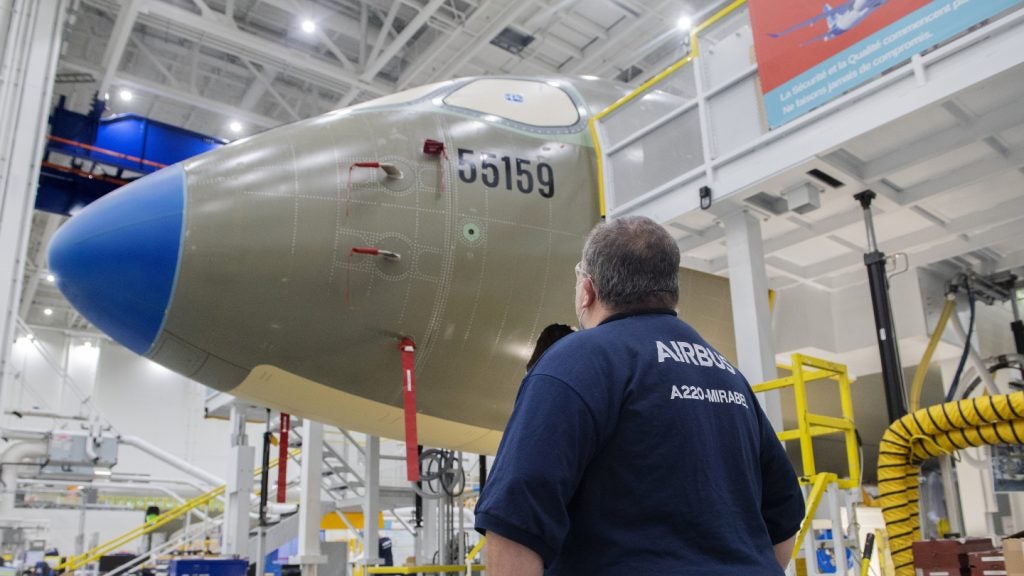
Wilhelm Bender, chairman of the executive board at Fraport AG, recently heralded the A380 as the catalyst in ‘a new age in air travel that is likely to spark fierce competition among the leading airports of Europe’. Frankfurt is preparing itself to handle these beasts of the air, which will be landing there by 2007.
According to Dr Bender, ‘to cut costs, the members of the top three alliances will redirect the bulk of their long-haul transfer traffic into a handful of mega-hubs, sidelining many of today’s secondary hubs. The trend will be accelerated by open skies, deregulation, mergers and the introduction of mega-planes such as the A380, which only the largest hubs with significant feeder capacity will be equipped to handle.’
This places Frankfurt at the forefront of this change.
Delivery of the first A380 aircraft by Airbus will mark a new era in civil aviation. The last aviation milestone was reached more than 30 years ago in January 1970, when the first Boeing 747 series started scheduled services across the North Atlantic.
To this day, jumbo jets have dominated long-haul air traffic worldwide. With the Airbus A380, a new generation of wide body jets will carry significantly more passengers and freight over even longer distances.
See Also:
AIRBUS INNOVATIONS
How well do you really know your competitors?
Access the most comprehensive Company Profiles on the market, powered by GlobalData. Save hours of research. Gain competitive edge.

Thank you!
Your download email will arrive shortly
Not ready to buy yet? Download a free sample
We are confident about the unique quality of our Company Profiles. However, we want you to make the most beneficial decision for your business, so we offer a free sample that you can download by submitting the below form
By GlobalDataFraport AG, the owner and manager of Frankfurt Airport (FRA), considers the development of the A380 both necessary and groundbreaking. The new aircraft features many innovations that will benefit not only passengers and airlines but also airports and the people living near airports.
The Airbus A380 has larger passenger and cargo capacities, allows non-stop flights over longer distances and is quieter than the Boeing 747, according to Airbus. Its economic and environmental benefits make the A380 the aircraft of the future.
With a 73m-long fuselage and a wingspan of just under 80m, the A380 will be the world’s largest commercial long-haul airliner. It will have a maximum takeoff weight of 560 metric tons and be powered by either Rolls Royce or General Electric/ Pratt&Whitney engines with 70,000lb of thrust each.
The A380 is the world’s first modern jet with a full-length twin-deck. Airlines can choose from various configurations, depending on market demand and conditions. The standard layout recommended by Airbus provides 22 first class seats and 334 economy class seats on the main deck, and 96 business class and 103 economy class seats on the upper deck. The cargo holds below the main deck also extend over the full length of the fuselage.
Despite its size and weight the A380 does not put any extra strain on airport runways and aprons as its landing gear is designed to spread the load over a large area. The new super-jumbo requires a shorter takeoff distance than the Boeing 747-400, and it also has a similar flight profile. The landing approach conforms to the common airport standard, which is predetermined by the instrument landing system’s radio beam with a glide path of about 3°.
SERVING THE FRANKFURT HUB
Frankfurt Airport (FRA) is the third most important passenger hub in Europe, after London-Heathrow and Paris-Charles de Gaulle. More than half of its 52 million passengers per year are transfers, connecting between intercontinental flights (from North and South America as well as the Far East), as well as onward flights and high-speed rail services to destinations in Germany and Europe.
This hub system makes economic and ecological sense. Compared to a costly air service network with direct flights between many individual destinations, the hub-and-spoke system bundles passenger volumes, reducing total air travel distances. This protects the environment and is cheaper.
Because of FRA’s hub function, airline departure and landing slots at FRA are in demand. The A380 can relieve this pressure: designed for intercontinental transportation, it can carry more passengers on a single trip than any other aircraft type, featuring about 555 seats in a three-class configuration.
PREPARING FOR THE AIRBUS A380
Alongside Dubai, London and Singapore, Frankfurt will be one of the first airports to be regularly served by the A380. Before the rollout of the new aircraft Frankfurt must develop the facilities to allow the A380 fleet to be stationed at the airport. This does not require any construction work on the existing runway system; FRA’s north runway is already the necessary width and length.
Likewise, taxiways will allow for A380 operations without any problems. Handling at the terminals will also be relatively unproblematic: some modifications at Terminal 2, where up to five gates will be capable of serving the A380, will ensure simultaneous passenger boarding on both decks of the A380.
At Terminal 1 Fraport also plans to adapt some gate positions to handle A380 flights with Lufthansa and its Star Alliance partners. The goal is to ensure that A380 passengers are handled as quickly and efficiently as the Boeing 747.
MAINTENANCE AT FRANKFURT AIRPORT
Lufthansa will need plenty of maintenance capacity when its new A380 fleet takes to the air in 2007. On 31 October 2005, Fraport handed over a cleared lot at the southern side of Frankfurt Airport. Under the terms of this 65-year land use agreement, Lufthansa Technik will turn the approximately 25 hectares into a maintenance base for its A380 Super Airbuses.
Lufthansa will invest some €150m in the facility. The master plan includes a maintenance hangar for up to four A380 aircraft, an apron with three A380 parking positions, a taxiway, a warehouse and a rainwater storage reservoir. The hangar will be about 350m long, 45m high and 140m wide. Its construction will secure or create some 2,000 jobs until 2015.
Lufthansa, Fraport’s main customer, has ordered 15 new A380s as the future flagships of its fleet. Flying out of Frankfurt, the first four planes are slated to provide regular service for the 2008 summer schedule.
Because of its large capacity, flight range and advanced technology, the A380 is the best solution for serving the busy long-haul routes between major hubs like Frankfurt, Los Angeles or Singapore. This is why almost 160 orders have been placed for the A380, including 15 by Lufthansa.
ECOLOGICAL CONSIDERATIONS IN AIRCRAFT CONSTRUCTION
For a long time, the focus in developing new aircraft was on performance criteria such as speed, load capacity and range. These criteria are still important; however, over the past 30 years further significant criteria have been added. Today, noise reduction is at the top of the aircraft designers’ list. Aircraft noise emissions are particularly disturbing for people living in the airport vicinity. The growing air traffic volume is more likely to be accepted if the aircraft are quieter.
Another important aspect is costs. With worldwide air traffic liberalisation, competition among airlines has increased. As a result, operating and maintenance costs of an aircraft are ultimately the decisive purchasing factors for an airline.
The Airbus A380 represents the best yet compromise between economic and ecological requirements in aircraft construction. The A380 will be the world’s first aircraft with a flight management system that features an integrated automatic noise optimisation function. The computer tells the pilot what the optimal flight configuration is so that noise impact on the ground is reduced to a minimum during takeoff or landing.
In addition, the new engines developed for the A380 are the quietest of their size. Based on an internationally defined takeoff and landing procedure, Airbus forecasts that the A380 will be at least four decibels quieter than the Boeing 747-400. This equates to a perceived 50% reduction in noise levels. In effect, the A380 is so quiet that it can be assigned to noise category four.
Progress is also obvious in terms of costs. Operating costs per seat will be reduced by about 15% compared to its forerunner, the B747-400. Fuel consumption per passenger and per 100km flown will be limited to 3.3l when fully loaded.
Frankfurt is in an excellent position to reap the benefits of the A380 and attract new ‘spoke’ business to its long-haul hub. The runway is ready, the terminal is ready, maintenance is nearly there; all they have to do now is wait for the first big bird to land.







